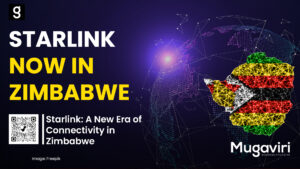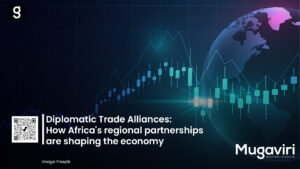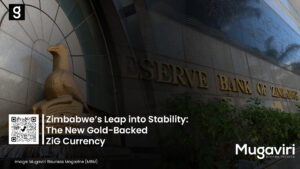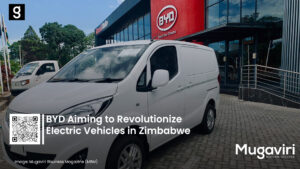
Discover More
Starlink: A New Era of Connectivity in Zimbabwe
Zimbabwe has just made a significant development that promises to reshape the…
Zimbabwe’s Leap into Stability: The New Gold-Backed ZiG Currency
In a bold move to stabilize its economy, Zimbabwe has introduced a…
Shaping the Future of Work
The year 2024 marks a pivotal moment in workplace dynamics, especially in…
More African Countries Rejecting Elon Musk’s Starlink.
 Image: Freepik
Image: Freepik
Elon Musk’s Starlink, a satellite-based internet service, has garnered global attention for its promise of high-speed connectivity and low-latency access. However, in several African countries, the road to Starlink adoption has been fraught with regulatory hurdles.
According to Elon, Starlink’s vision is to provide high-speed, low-latency internet with coverage due to its constellation of satellites. However, some countries, such as South Africa, have banned StarLink from operating within their borders. On August 14th, 2023, South Africa banned the import of Starlink kits. The country’s telecommunications regulator demanded that local Internet Service Providers (ISPs) cease acquiring, distributing, and facilitating the sale of any Starlink products. The ban is due to a legal requirement imposed by the Electronics Communications Act (ECA). This act mandates that historically disadvantaged groups (HDGs), including black people, youth, women, and people with disabilities, must own 30% of a company before it can obtain the necessary telecom licenses to operate a broadband service locally. Since Starlink has not met this requirement, it could not secure the necessary telecommunications licenses
In early 2024, Zimbabwe’s Postal and Telecommunications Regulatory Authority (POTRAZ) issued a warning to Starlink users and resellers. They stated that these entities must obtain the necessary licenses to operate legally. To operate in Zimbabwe, Starlink has two options: either apply directly for a license or collaborate with a registered public network within the country to offer its services. The regulatory authority expressed concerns about unauthorized entities distributing customer premises equipment for satellite-based internet services
The Botswana Communications Regulatory Authority (BOCRA) has declined a license application from Starlink, Elon Musk’s satellite internet venture, to operate within Botswana. The application, submitted in May 2023, aimed to introduce high-speed satellite internet across the nation, with the promise of enhancing competitiveness and strengthening the country’s digital infrastructure for economic growth.
BOCRA’s decision has sparked widespread concern among businesses and economic analysts. It highlights the protectionist stance of the existing, albeit costly and uncompetitive, telecommunications industry. At a time when the importance of digital infrastructure for business ease is globally recognized, critics argue that this move not only hampers Botswana’s economic competitiveness but also conflicts with the government’s objectives to develop key sectors like tourism, which is earmarked for growth.
Recent developments underscore the urgency of the situation. For example, Botswana Ash had to invest a substantial amount (P4.6 million) to extend fibre-optic connectivity from Sowa Town to its mining operations, covering a distance of 22 kilometres. This project emphasizes the exorbitant costs businesses face due to inadequate internet infrastructure. The tourism sector, crucial to Botswana’s economy and targeted for expansion, particularly suffers from slow and expensive internet services in remote tourist destinations like camps in the Okavango Delta, compromising the competitiveness of wildlife tourism. In a separate instance, a high-ranking official employed by one of the prominent eco-tourism companies expressed her disappointment, underscoring that “high-speed internet is non-negotiable” for the tourism industry. She lamented the adverse impact on profit margins due to the existing costly and inefficient internet solutions. Additionally, another senior mining executive recently conveyed to the Botswana Guardian that if competition and innovative solutions are being denied, then fibre-optic connectivity should be extended to critical areas like mines. The sentiment is that mines should not be compelled to transform into internet service providers when a willing service provider exists to bridge the gap and enter the Botswana market.
The denial of Starlink’s license has not only hindered potential business growth but has also ignited a broader discourse on economic policy and regulatory practices within Botswana. Economist Keith Jefferis, speaking at the FNB Budget Review, criticized the Botswana government’s economic and regulatory priorities, particularly the substantial infrastructure spending on roads and telecommunications. He argued that this approach creates special interest groups with vested interests in specific spending programs.
This controversy arises at a pivotal moment for Botswana as it endeavours to harness digital technology for economic advancement. Many view BOCRA’s rejection of Starlink’s application as a missed opportunity to leapfrog technological progress and enhance the country’s global competitiveness. As discussions persist, the decision raises crucial questions about the future trajectory of Botswana’s digital infrastructure strategy and its implications for economic growth and inclusivity.





